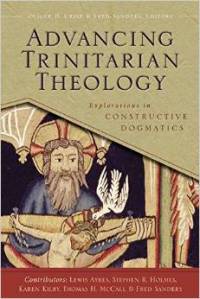 Several of the papers from January’s second annual Los Angeles Theology Conference are headed to print, with Zondervan prepping the volume Advancing Trinitarian Theology: Explorations in Constructive Dogmatics. As with last year’s conference volume
Several of the papers from January’s second annual Los Angeles Theology Conference are headed to print, with Zondervan prepping the volume Advancing Trinitarian Theology: Explorations in Constructive Dogmatics. As with last year’s conference volume , Oliver D. Crisp and Fred Sanders serve as editors.
, Oliver D. Crisp and Fred Sanders serve as editors.
Nine essays on the doctrine of the Trinity are included, among them those of conference headliners Lewis Ayers, Karen Kilby, Stephen R. Holmes, Thomas H. McCall, and Sanders.
I contributed the essay titled “Obedience and Subordination in Karl Barth’s Trinitarian Theology,” an exploration of Barth’s controverted discussion of the Son’s eternal subordination to God the Father in Church Dogmatics IV/1 (roughly the final third of §59.1). Here is an extended snippet from the introduction:
… What is therefore remarkable and “offensive” about Barth’s words is that he does not restrict this relation to the economy, but suggests that the superiority and subordination (Vor- und Nachordnung) “belongs to the inner life of God.” Furthermore, Barth has made this claim in the context of an explicit disavowal of the ancient heresy of Subordinationism (Subordinationismus), which taught that the Son is ontologically inferior to the Father. This view was offered by pro-Arian theologians because it allowed them more easily to resolve a certain set of difficulties – namely the strict singularity and immutability of God in light of the human life and death of one who is confessed to be God’s Son. It was rightly rejected by the church. The language of subordination, then, bears a great deal of unfortunate baggage in Christian theology. Can theologians have it both ways – some sort of subordination in the Trinity without heretical Subordinationism?
This passage continues to vex Barth’s interpreters. G. C. Berkouwer suggests that Barth’s is “an unacceptable conclusion,” and “can only be characterized as speculation.”5 Rowan Williams calls the passage “a very long and tortuous treatment. … What, if anything, this can possibly mean, neither Barth nor his interpreters have succeeded in telling us.”6 Kevin Giles can only conclude that Barth’s rhetoric here finally reaches a “breaking point” and collapses into “convoluted, poetic language.”7 And Paul Molnar believes that Barth is guilty of illegitimately reading elements of the economy back into the immanent Trinity. Barth has made “a subtle mistake which places his thinking in conflict with itself.”8 Among other problems, Molnar concludes, this inadvertently introduces hierarchy into the immanent Trinity, blurs the distinction between processions and missions, and “could open the door both to subordinationism and to modalism in some form or another; it might even open the door to monism, dualism or tritheism.”9
The question of whether Christian theology rightly may speak of a strictly functional subordination in the Trinity certainly extends beyond Barth studies. This qualifier has recently generated a great deal of controversy in evangelical quarters. That debate concerns whether “eternal, functional subordination” in the Trinity ought to inform our understanding of human gender relations, and is only tangentially related to my task here. What I wish to do is to identify the place that Barth’s account of divine obedience has in his trinitarian theology, and whether it is fitting to describe it using the language of “functional” and “ontological” subordination – terms that belong to the contemporary conversation, and which to my knowledge were never employed by Barth. To do this I will subject Barth’s position to three lines of criticism: (1) Can Barth affirm that this subordination is eternal, yet still restrict it to function and so avoid the trap of heretical Subordinationism? (2) If Barth’s theological ontology bears an actualist character, can he affirm that the subordination of the Son to the Father is strictly functional and not also ontological – since God’s being and God’s activity are always mutually implicated? (3) Does Barth’s location of obedience within the inner life of God not imply two divine wills, and therefore necessarily a social model of the Trinity?
Pre-order the book now at Amazon for only $17, or get the Kindle
for only $17, or get the Kindle version for $12. The third L.A. Theology Conference will take place at Biola University January 15-16, 2015, on the topic “Locating Atonement.” Read more at the conference website.
version for $12. The third L.A. Theology Conference will take place at Biola University January 15-16, 2015, on the topic “Locating Atonement.” Read more at the conference website.
(And when you’re done, take a gander at the shiny new Publications page.)
[5] G. C. Berkouwer, The Triumph of Grace in the Theology of Karl Barth (London: Paternoster, 1956), p. 304
[6] Rowan Williams, “Barth on the triune God,” in Mike Higton (ed.), Wrestling with Angels: Conversations in Modern Theology (Grand Rapids: Eerdmans, 2007), p. 129.
[7] Kevin Giles, “Barth and Subordinationism,” Scottish Journal of Theology 64 no. 3 (2011), p. 346.
[8] Paul D. Molnar, “The Obedience of the Son in the Theology of Karl Barth and of Thomas F. Torrance,” Scottish Journal of Theology 67 no. 1 (2014), pp. 50-69 (quotation on p. 59).
[9] Molnar, “The Obedience of the Son,” pp. 65-6; cf. pp. 63-4
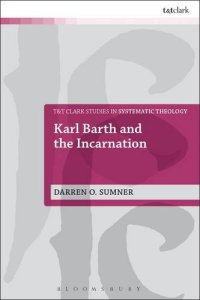 My book on Karl Barth’s Christology has been in print for a little over a year now, though the price tag has put it out of reach for the ordinary theologian on a budget. But, thanks to the wonders of the paperback, that’s all about to change.
My book on Karl Barth’s Christology has been in print for a little over a year now, though the price tag has put it out of reach for the ordinary theologian on a budget. But, thanks to the wonders of the paperback, that’s all about to change.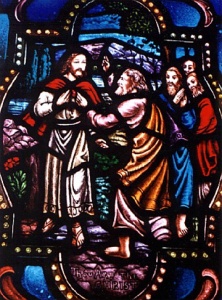 My book
My book 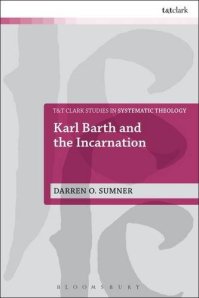

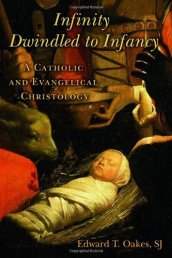
You must be logged in to post a comment.